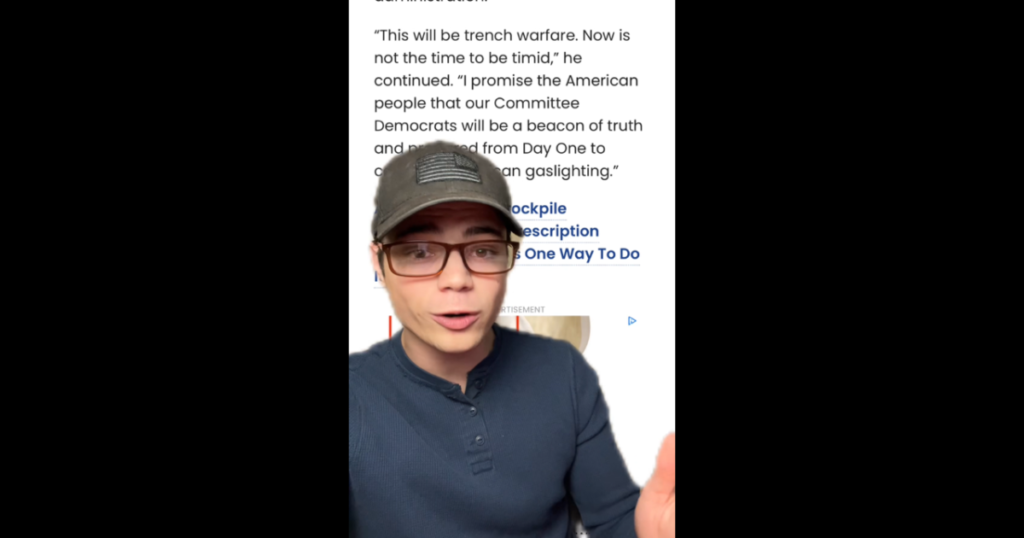The political landscape in the United States is rife with contradictions and double standards, particularly when it comes to the rhetoric used by various factions within the government. The narrative often put forth by the radical left illustrates a troubling inconsistency wherein calls for civility and peace are juxtaposed with inflammatory language that can incite conflict. For instance, when leaders encourage citizens to remain peaceful, yet simultaneously use phrases like “fight, fight, fight” after personal threats, it highlights the complexity and hypocrisy of their statements. Such rhetoric raises questions about how it is perceived depending on the political affiliation of the speaker, revealing a profound divide that permeates contemporary political discourse.
A prime example of this double standard is seen in the recent comments made by Rep. Gerry Connolly, the new incoming House Oversight Committee Democrat Ranking Member. Following a closely contested victory, Connolly expressed a commitment to engage in what he termed “trench warfare” against the political agenda of former President Donald Trump and the Republican Party. His declaration signals a willingness to abandon any pretense of bipartisan cooperation and instead approach governance as a battleground, undermining the foundational premise of democratic discourse, which encourages dialogue over division.
In Connolly’s statement, he critiques the Republican Party for their use of “debunked conspiracy theories” and expresses a sense of urgency in combating what he perceives as the abuses of the previous Trump administration. This aggressive stance underscores the radical left’s commitment to opposing Republican reforms and suggests an overarching strategy that prioritizes partisan victory over collaborative problem-solving. Connolly asserts that the Democrats will be a “beacon of truth,” yet the aggressive metaphor of trench warfare suggests a willingness to embrace conflict rather than seek common ground, setting a perilous tone for future political interactions.
Moreover, Connolly’s assertion that Democrats will be “disciplined” and “laser focused” indicates a strategic pivot towards a more combative political environment, one that is likely to further polarize the American electorate. This focus on kitchen table issues, coupled with a commitment to safeguard the alleged progress made under the Democratic leadership, reflects a conscious decision to rally the base around a defensive narrative. However, the militaristic language employed also raises concerns over escalating tensions between opposing parties, risking further division rather than fostering unity in addressing the pressing issues facing American citizens.
Additionally, the lack of consistency in the left’s approach to political commentary and action ultimately contributes to the growing skepticism among the electorate. Many Americans have become increasingly disillusioned with political leaders who fail to maintain coherent standards of conduct and rhetoric. The apparent absence of moral integrity or consistent ethical guidelines in political engagement leads to a significant erosion of trust between the constituents and their representatives, as citizens grapple with the dichotomy of being called to civility while witnessing aggressive political maneuvers.
In conclusion, the current political climate is marked by deepening divisions and an escalating rhetoric that appears to prioritize partisan victory over shared democratic values. As representatives like Rep. Gerry Connolly embark on a course of “trench warfare,” the implications for governance and social cohesion are profound. This environment not only threatens the ability of political leaders to foster collaborative efforts in tackling the nation’s most pressing challenges but also risks further alienating a disillusioned populace that has grown weary of the politics of division and discord. In navigating this fraught landscape, the necessity for genuine dialogue and consensus-building becomes ever more apparent, serving as a vital counter to the prevailing tendency toward conflict and hostility.

